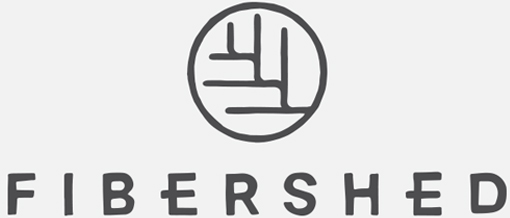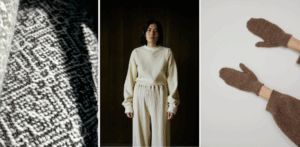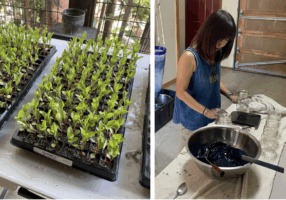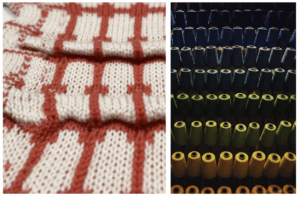Regenerating Our Textile Systems Course
Learn how we can meet urgent climate goals through regenerating relationships between production and consumption
Join Fibershed for a 4-part webinar series to catalyze change in your business, supply relationships, and the broader community. Learning outcomes include:
- Defining regeneration in social and environmental contexts
- Understanding our capacity to regenerate Earth’s biomes
- Activating the role of textile designers and brands in creating materials that take responsibility for the legacy load of carbon in the atmosphere
- Using holism to avoid life cycle “leakages” and externalized costs to our environment and relationships
- Embracing biomimicry and why decentralization is key to truly circular economies
- Learning from “regrettable solutions” — what microplastic pollution can teach us about material design
- Taking a whole supply chain perspective: What are we typically measuring, and what is missing?
- Building direct relationships: the value of committing to supply networks from soil to soil
- Becoming an advocate within your organization and community
Join the Fibershed Mailing List
Enter your email below to sign up for Regenerating Our Textile Systems, and you will receive links to access all the course materials and live sessions.
By providing your information, you will also receive updates from the Fibershed mailing list (and you can unsubscribe at any time).
Who should take this course?
This course is open to anyone seeking to integrate the knowledge of regenerative material systems into their practice and role in their community or organization. Fibershed originally developed this curriculum specifically to serve designers and professionals in the fiber and textiles sector. With the pandemic underway, we are opening the course publicly: no prior experience or training is needed. However, familiarity with the subjects outlined below is encouraged.
What will I learn?
Readings will be provided after each session, along with a link to the recorded webinar—make sure to check your spam folder if you don’t see it within a week of the live webinar date. Each session will focus on regenerative systems’ core themes, with guest speakers who are experts in a range of fields, from science to social justice.
How will it work?
By registering for this series, you will receive access to the course materials, live sessions, and recordings by email. Each session will be hosted live on Zoom; a link to each session and recommended readings will be emailed directly to you in advance.
How much time will it take?
Each session includes recommended readings to familiarize yourself with core concepts before the live course. The readings, live sessions, and post-session reflections can be completed in a minimum of 2 hours per month. More in-depth learning opportunities will be available for those who wish to invest more time.
Course Details & Core Learnings
Session 1: Defining Regeneration for Fiber & Textile Systems
From carbon cycling to creative supply chain partnerships, this session explores the fundamental connections between atmosphere and soil. We explore the practical ways to balance risk in the supply chain to meet our climate goals.
Core learnings:
- Develop an understanding of the role of brands & designers to enhance biological and social regeneration
- Realize the impacts of a 1.5 and 2-degree pathway specific to supply chains
- Explore the potential for meeting textile industry climate goals through the supply chain
- Develop an understanding of the carbon cycle and its connection to climate change and your work specifically
- Develop an understanding and working definition of environmental justice and how it connects to your work specifically
- Develop an understanding of exacting strategies that can enable environmental justice within your supply chain
Guest speakers:
- Dr. Jeff Creque, Director of Rangeland and Agroecosystem Management at the Carbon Cycle Institute, on the Earth’s Carbon Cycle and Earth’s Energy Battery
- Gopal Dayaneni, MG Planning Committee at Movement Generation, on how the Exploitation of People is at the Root of Exploitation of Natural Resources
- Sarah Bellos, founder, and CEO of Stony Creek Colors
- Nishanth Chopra, founder of Oshadi Studio and organizer of the Prakriti Fibershed Affiliate
- Led by Rebecca Burgess, founder and Executive Director of Fibershed
This session aired on April 29. For the resources of this session, please register above.
Session 2: Designing for True Circularity and Biological Systems
Framing circularity within the capacity and design of natural systems, including a San Francisco Bay case study on micro-plastic fiber pollution.
Core learnings:
- Learn about the current industry-led definition of circularity and example of circularity in practice
- Using holism to avoid life cycle “leakages” and externalized costs to our environment and relationships
- Embracing biomimicry and why decentralization is key to truly circular economies
- Learning from “regrettable solutions” — what microplastic pollution can teach us about material design
Guest speakers:
- Beth Rattner, Executive Director, Biomimicry Institute
- Megan Schuknecht, Director of Design Challenges, Biomimicry Institute
- Diana Lin, Ph.D., Senior Scientist, San Francisco Estuary Institute
- Margot Lyons, Manager, Production + Sustainability, Coyuchi
- Kristy Caylor, CEO, For Days
This session aired on May 20. For the resources of this session, please register above.
Session 3: Deepening Impact Assessments toward Social and Climate Goals
Why is taking a holistic perspective critical to meeting our goals, and how might we approach life cycle assessments to ensure our measurement and modeling are leading us in the right direction?
Guest speakers:
- Dr. Marcia DeLonge, Research Director and Senior Scientist in the Food & Environment Program at Union of Concerned Scientists
- Paige Stanley, Doctoral Researcher at UC Berkeley Department of Environmental Science Policy and Management
- Annie Shaw, Outreach Coordinator at the Garment Worker Center
- Teresa Garcia, Garment Worker Center Member
- Led by Rebecca Burgess, founder and Executive Director of Fibershed
This session aired on August 31. For the resources of this session, please register above.
Session 4: Understanding Our Role in Whole Systems
Time and Date TBD
Towards whole natural food, fiber, and dye systems: Integrating animals and land. Moving into a biomimetic form of agriculture. Additional details to come.
BONUS: 2020 Wool & Fine Fiber Symposium
November 12-14, virtual event
Livestream our 2020 Wool & Fine Fiber Symposium for continued learning.



